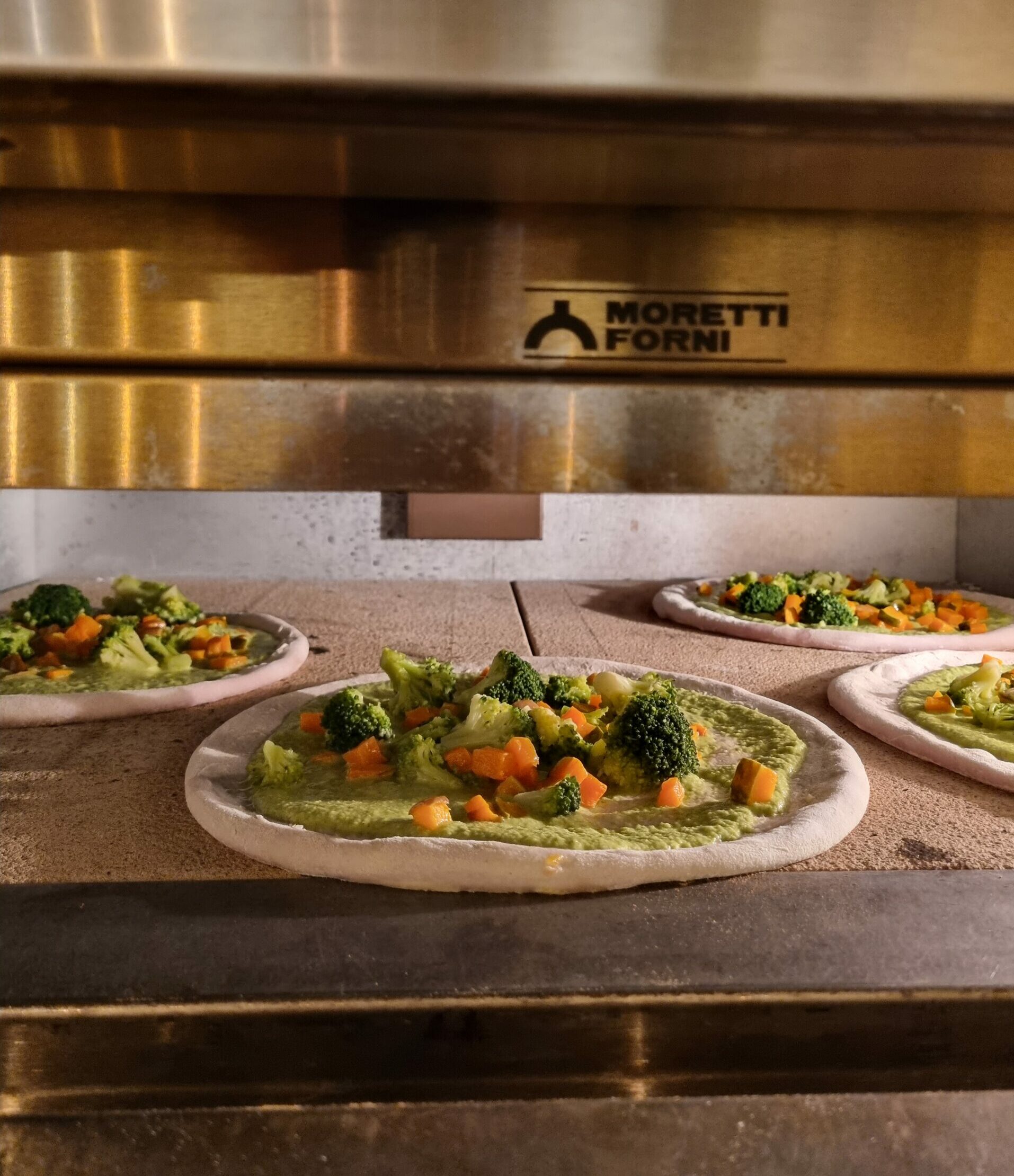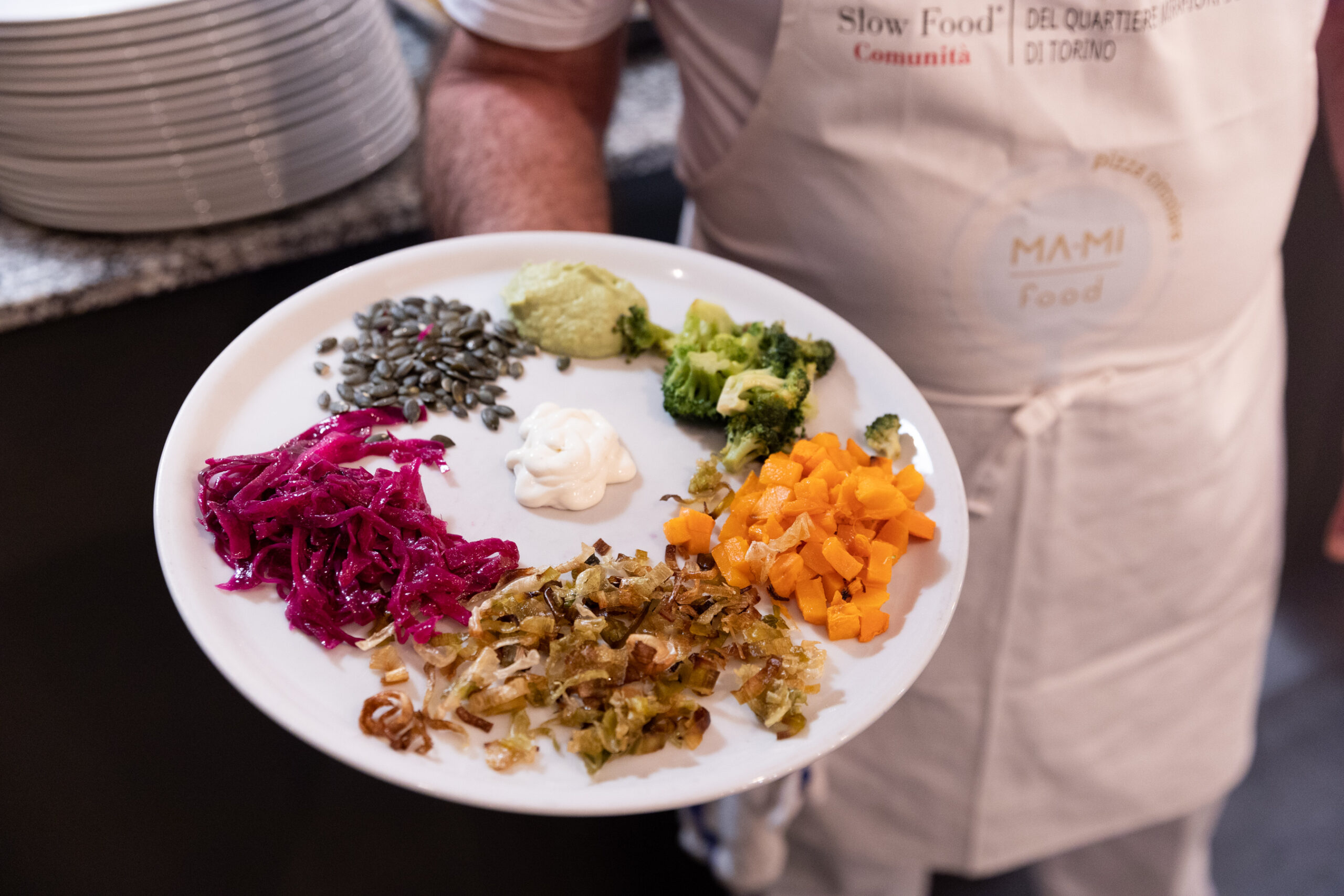The circular pizza, a reinterpretation of a great classic of Italian cuisine according to the principles of circular economy applied to food is available in Torino at the Locanda nel Parco in Mirafiori following a proposal of the University of Gastronomic Sciences and the Pollenzo FoodLab, thanks to the FUSILLI European project.
The “Pizza Circolare“ event was implemented by the city of Turin, in collaboration with the local partners like Mirafiori Community Foundation, University of Gastronomic Sciences of Pollenzo, the University of Torino, and Orti Generali, the local vegetable garden project. The circular pizza was made at Locanda nel Parco, a restaurant managed by another one of Turin’s third-party partners, the Mirafiori Social Cooperative.

As City of Turin’s Councilor for the city’s ecological and digital transition, Chiara Foglietta, underlines,
” The Circular Pizza is an important piece of the broader strategy on which the City of Turin has been working with commitment for some time, aimed at accompanying the transition of the city food system towards solutions in line with the Food 2030 priorities of the European Union.
It is no coincidence that the city has included the theme of the circular economy as one of the four pillars on which the new interdepartmental working group, also born thanks to the ideas and synergies with the European project FUSILLI, which has the objective of creating shared and unambiguous policies in the food sector. “
The Circular Pizza is a gastronomic proposal designed by the University of Gastronomic Sciences of Pollenzo and the Pollenzo FoodLab, an experimentation and training laboratory for innovation in the kitchen, in collaboration with the Locanda nel Parco, the social restaurant of the Casa nel Parco. The innovative concept embodies the principles of the Circular Economy for Food (CEFF) that the University has promoted over the years with the aim of contributing to the development of the circular economy applied to the food system.
“ The Circular Economy for Food is that systemic way of thinking and acting, which starts from placing the protection and regeneration of natural capital to which the human, cultural and economic capital is associated at the center of every decision-making process, respecting planetary limits and offering at the same time a fair space for civil society. The first step is trying to avoid compromising relations with the best raw material supplier known to mankind, i.e. nature, to then think about the enhancement of any surplus, social inclusion, the full use of ingredients, the recovery of know-how in the kitchen and so on “
– says prof. Franco Fassio, curator of the initiative, together with the systemic designer Alessandra Savina and the WG of the Food Lab, made up of gastronomers and trainers who, with their experience and creativity, come up with new gastronomy paradigms every day.
Following the 3Cs of the CEFF (Capital, Cyclicity and Co-evolution), the pizza enhances its ingredients in their entirety, avoiding the generation of waste, enhancing the natural and cultural biodiversity typical of the area and involving the community with a nutritious and healthy product for the humanity and the planet (One Health).

The revisited Quattro Stagioni - or Four Seasons pizza
The first revisited pizza recipe proposed at Locanda nel Parco questions the famous pizza Quattro Stagioni (Four Seasons). The “classic” toppings such as mozzarella, tomato, artichokes, olives, mushrooms, cooked ham, in the new version designed by Pollenzo are replaced by seasonal vegetables, the typical Piedmontese cheese Mortrett, or Seirass del Fen, a seasoned ricotta Slow Food Presidium with the addition of aromatic herbs from the kitchen garden grown in the Spazio WOW, a former factory in the neighborhood regenerated with a green vocation, and the long leavening dough cooked in an energy-saving oven, made with refractory material, capable of maintaining temperature and reduce consumption. The recipe, in its winter version, includes broccoli, butternut squash, purple cabbage and leek as vegetable ingredients: vegetables that are a seasonal expression of the Piedmont area.

The revisited pizza toppings
The gastronomic proposal is designed to be versatile and replicable for every season and there it is part of a broader reasoning that the Pollenzo University is pursuing, with the ambition of revisiting some great classics of Italian cuisine, in a sustainable and circular way.
It is not, in fact, a unique mix of its kind, but a modus operandi applied to a vegetarian pizza, something that the French anthropologist Claude Lévi-Strauss would define as an action of “peasant bricolage” or that ability of traditional societies to use material and immaterial knowledge by creatively recombining them, to make the most of them and avoid the generation of waste. “La Gastronoma” is the name of the new pizza, conceived by the students of the Master Degree in Food Innovation & Management of UNISG, involved in the sensory tests that led to the generation of the winter recipe. A pizza that brings the natural and cultural biodiversity typical of each area to the table, minimizing the waste deriving from its production in a circular economy key.
